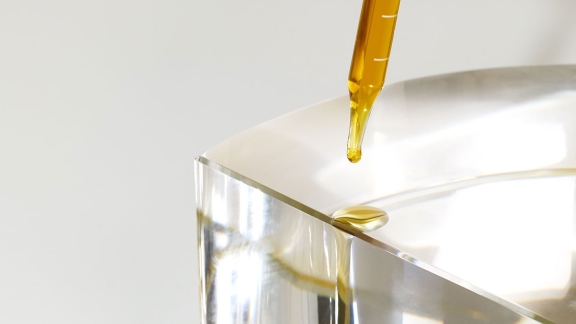Cannabis, hemp, and cannabidiol (CBD) are three terms you have likely heard many times but may not fully understand what differentiates them. Over the past several years, there has been a rush of hemp-derived products hitting the market, ranging anywhere from oils and tinctures to gummies and kombuchas to lotions and beauty products.
The sheer number of available products, inconsistent labeling and terminology, and types of CBD have led to a lot of confusion. One of the questions that continues to come up is, “What is full-spectrum CBD oil vs. hemp seed oil?”
There’s actually a big difference. They are two distinct products with different characteristics and benefits.
Let’s break it down by taking a look into full-spectrum CBD oil vs. hemp seed oil, including how each product is extracted, their CBD and tetrahydrocannabinol (THC) content, and potential benefits.
Full-Spectrum CBD Oil vs. Hemp Seed Oil: Everything You Need To Know
The first area of confusion is between cannabis and hemp—cannabis plants and hemp plants are often lumped together and used interchangeably because they’re two varieties of the same plant species, Cannabis sativa. Hemp plants are simply cannabis plants specially grown to have less than 0.3% THC, whereas THC content in cannabis plants averages around 17%.
As for full-spectrum CBD oil vs. hemp seed oil, the difference is really between CBD oil and hemp seed oil. Full-spectrum is one of three types of CBD, which we’ll touch on later.
Hemp seed oil comes from cold-pressing the seeds of the hemp plant and has no more than trace amounts of CBD and no THC. Instead, hemp seed oil has polyunsaturated fatty acids such as omega-3 and omega-6, vitamins, and minerals.
CBD oil, on the other hand, comes from the leaves, flowers, and stalks of hemp plants and can be extracted through several methods, including CO2 extraction, solvent extraction, and steam distillation.
Types of CBD
Full-spectrum CBD products retain CBD in addition to other cannabinoids and terpenes found in the hemp plant. This includes small amounts of THC, which in hemp is less than 0.3%. Broad-spectrum CBD is similar to full-spectrum, but it goes through an additional process to remove the THC from the CBD. CBD isolate is pure, isolated CBD that does not retain additional compounds from the hemp plant.
Potential Benefits of Hemp Seed Oil
While hemp seed oil is not used for recreational purposes, it’s often added into nutritional supplements and in beauty products. It is also often bought by itself and either taken orally or incorporated into meals.
Hemp seed oil may help to:
-
Promote cardiovascular health by improving total cholesterol, high-density lipoprotein cholesterol, low-density lipoprotein cholesterol, and triglycerides
-
Improve skin conditions
-
Relieve constipation
-
Improve gastrointestinal conditions
Potential Benefits of CBD Oil
CBD has many potential benefits that are still being researched and discovered. CBD interacts with receptors in the brain via the endocannabinoid system—a network of receptors that supports neuronal activity and plays an important role in the regulation of processes and functions, including sleep, mood, pain, inflammation, and memory. This interaction gives rise to many potential benefits of CBD oil —the most common of which are reducing mild anxiety, managing and alleviating aches and pains, and improving sleep.

The Takeaway
While both CBD oil and hemp seed oil offer a range of benefits, CBD products have more potential. It’s important to do your research to understand what exactly you’re paying for. CBD oil costs significantly more to produce a quality product than hemp seed oil. However, some companies take advantage of the confusion that arises due to CBD and hemp seed oil being in the same cannabis family and incorrectly market them as the same thing.
If you’re ooking for a high-quality CBD oil, look for clear labeling on the bottle stating the number of milligrams of CBD and the percentage of THC. Always ask for a Certificate of Analysis to verify proper third-party testing has been performed and to guarantee you’re getting what you pay for. This testing ensures purity and consistency of the product and tests for aspects such as cannabinoid potency, terpene potency, pesticides, herbicides, heavy metals, microbiological contaminants, and residual solvents, among others.
Delivering High-Quality Full-Spectrum CBD Oil
At Feals, we’re dedicated to providing a better way to feel better. We provide thoughtful, high-quality, hemp-derived CBD oil designed to help you keep a clear head and feel your best. Our CBD oils are rigorously tested both internally and through a third party for quality and safety to ensure we’re providing the purest, cleanest product possible.
These statements have not been evaluated by the Food and Drug Administration. This product is not intended to diagnose, treat, cure, or prevent any disease. This article is for informational purposes only. It is not, nor is it intended to be, a substitute for professional medical advice, diagnosis, or treatment and should never be relied upon for specific medical advice.

